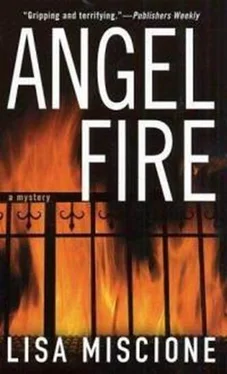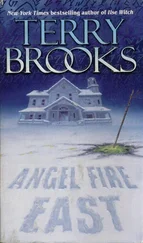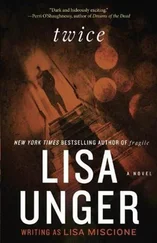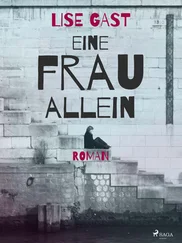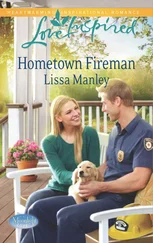“I did not ask her any questions but slid closer to her and put my arm around her shoulder. She leaned her head against me, and wept. She sensed that there was no need for her to speak, and there wasn’t. I could feel her pain, her shame, her hopelessness for the future, her sorrow for the life she took. I knew no words would comfort her. So, instead, I kissed her forehead gently and breathed into her all the love and forgiveness I knew God would offer her.
“‘God has already forgiven you, Allison. Forgive yourself,’ I told her.
“Four days later, Allison regained her sight. She told people that I had healed her, that I had told her of God’s forgiveness. She told them that I knew her feelings without words. People believed. They began to seek me out for guidance.
“I was very uncomfortable with this new role. But I didn’t have the heart to turn them away. I thought, Maybe God is helping people through me, maybe this is why I am on this earth. And I found that, somehow, my words had the power to help people solve their problems. When people spoke to me, they felt understood. Maybe it was just because I listened.
“Several months after I saw Allison, a couple who had traveled from several towns away brought their autistic son Morgan to me. I was reluctant, but agreed to spend time with him, though I was not sure how I could help the child. In my heart I knew I hadn’t healed Allison, even if she had convinced herself and others that I had. While I did not mind counseling people who sought my advice, I did not want them to be deceived into thinking that I could heal their sick. But the couple seemed so desperate, so needy, I couldn’t say no.’’
Juno had stuck both his hands in his pockets and had turned his eyes toward the ground. He wore a confused and sad expression, as if he still didn’t quite believe what had happened to him. He seemed to be offering the story to her, not quite expecting her to make sense of the events as they had played out, not quite able to make sense of them himself.
“I brought him into the church recreation room where catechism classes were held while his parents waited, praying in the church. The boy sat on a chair silent and perfectly motionless, smelling lightly of soap and talcum powder. I touched his hair, which had been close-cropped for the summer months. It felt like the bristles of a brush, hard and fuzzy at the same time.
“Thirty minutes passed. The boy was a locked box. Whatever was happening inside his head, there was no energy leaking out for me to feel or recognize. The boy’s soul is on inside out, I thought;
he’s sealed inside himself. I had the sense that Morgan’s life was playing on a movie screen inside his head, two-dimensional and distant. Morgan was a witness to what went on around him but could not participate.
“Suddenly, while I was speaking to him, telling him the story of Noah’s Ark, the child issued a brief, blood-curdling scream. Then he sat still again, as if he had never opened his mouth. He frightened me and I moved away from him and began to play my guitar, not knowing what else to do.
“After a full hour, I took Morgan back out to his parents. I told them I didn’t think I had helped their son. They thanked me for my efforts and left solemn and disappointed.
“As I heard them drive away, I felt angry with myself for not being able to reach the boy, for being so inept in the face of Morgan’s obvious need. I wondered if it was God’s intention for Morgan to remain as he was, or if I had failed in a task set before me.
“But several weeks after Morgan’s visit, the rumor spread throughout the congregation that I had healed the autistic child. It was said that four days after his visit, Morgan began talking and interacting like a normal child. I wanted to believe them but I knew in my heart that it wasn’t true. I tried to find out Morgan’s last name so that I could call his parents and see if what people were telling me was true but no one seemed to know them. When people asked about it, I replied, I did not heal that boy. If he grew better, it was God’s will.
“But my replies were interpreted as modesty, as a deference to God,’’ he said, finishing his story, “and I found that no matter what protestations I made, I could not move people from what they wanted to believe. Even the truth could not diminish their faith in me.’’
“But then people lost interest when the boy you visited in the hospital died hours later from a failed transplant.’’
“So you already know all of this?’’ he said, clearing his throat. And for the first time since she arrived, he seemed uneasy, began unbuttoning and buttoning again the cuff of his immaculately cleaned and pressed denim shirt.
“What time was it when you found the dog?’’ asked Lydia, changing the subject.
“It was about six o’clock in the morning. I had risen early to practice my guitar, but was distracted by an odd smell coming from the garden – the door was open. As I neared, I heard a rustling. But when I called out, no one answered. I walked out into the garden and slipped in the dog’s blood. It was very disturbing.’’
“Who removed the dog?’’
“The police came and took some photographs. Then they took the body away.’’
“Did anybody else see it?’’ she asked, hoping someone could tell her exactly how the dog had been mutilated, since obviously Chief Morrow wasn’t going to turn over photographs he’d claimed he didn’t have.
“Only my uncle.’’
The hairs on the back of Lydia’s neck rose as she had the sudden feeling that someone was watching. She looked around behind her but beyond the garden was nothing but a dirt road, traveled only by a tumbleweed. She looked at the flowers again and flashed on the image from her dream, when they’d mocked her cruelly.
“Is your uncle here now?’’ she asked.
“Yes, but he is preparing for mass. If it’s not urgent, perhaps I could have him call you.’’
“That would be fine.’’ She pulled a business card from her purse and handed it to him. He slipped it into his pocket and began to move away from her, then stopped.
“What are the reasons for your questions, Ms. Strong?’’
She realized she didn’t really know how to answer. What was she supposed to say? I’ve watched you. I’ve had a dream about you and my dead mother. Also, I have this morbid curiosity that leads me to ask difficult questions so that I can write twisted books about horrible crimes. I am always following a trail, looking for the monster in the dark, and I think there could be something really sick – sicker than is obvious – behind the mutilated dog you found in your garden.
Instead she said, “Were you born blind, Mr. Alonzo?’’
He paused before answering. “Yes, I was.’’
“Do you think it’s easier? I mean, never having had sight as opposed to being blinded by an accident.’’
“I’m sure I wouldn’t know. But I don’t feel disabled in any way, if that’s what you mean. Though I might, should I suddenly be paralyzed. I’m not sure where you’re headed with these questions.’’
“I’m not headed anywhere. I’m just curious.’’
“I find that hard to believe. Your reputation precedes you.’’
“How’s that?’’
“I doubt you’d waste your time here just out of curiosity about a dead dog and a blind man.’’
“Well, Mr. Alonzo, I won’t waste anyyour time,’’ she answered as she walked past him through the doorway. She was not ready to reveal anything to him about her suspicions and she did not enjoy lying. So it was better to say nothing at all.
“Ms. Strong, will you stay for mass?’’ Juno asked, as he followed her back through the doorway.
“Please call me Lydia. No, thank you. I have to meet a friend at the airport and I should go.’’
Читать дальше
